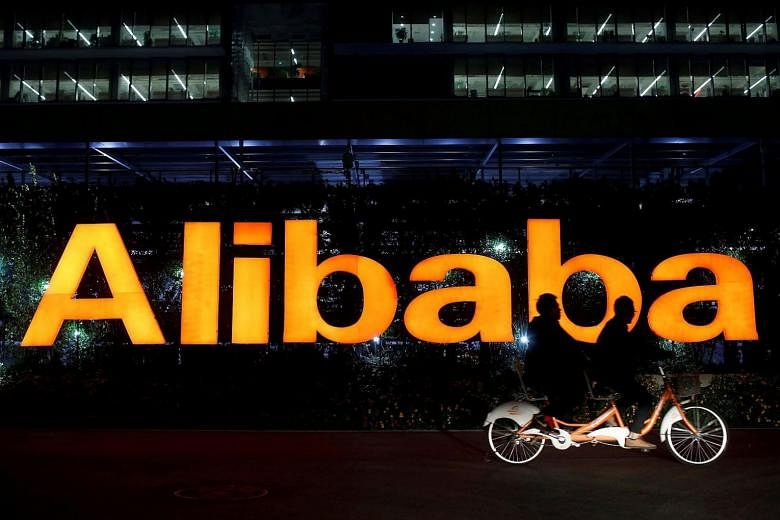BEIJING (BLOOMBERG) - Jack Ma beat Jeff Bezos into grocery stores. Now China's richest man is again showing his rival the way by targeting six million mom-and-pop shops, the biggest test yet of a vision to reinvent physical retail.
Ma's Alibaba Group Holding Ltd is prepping for Singles' Day - an annual Nov 11 online shopping fiesta dwarfing Black Friday and Cyber Monday that Citigroup Inc. estimates could generate a record 158 billion yuan (S$32.4 billion) of sales.
This year comes with a twist: the e-commerce titan has enlisted 10 per cent of China's convenience stores, about 600,000 outlets, to hawk goods and get billions of parcels shipped to customers nationwide.
Connecting your friendly neighbourhood store to the internet is the latest thrust in Alibaba's ambition to shake up China's US$4 trillion (S$5.4 trillion) retail market, itself conceived as a way to pump-prime a maturing e-commerce business. The idea is to connect virtual and offline worlds, drawing more customers onto its network to boost online orders while amassing valuable purchasing data.
To that end, Alibaba teams fanned out across the nation ahead of Nov 11 to help outlets upgrade systems to better track inventory. Those retailers, many in prime city locations, will become delivery and storage centers.
"You can see from this retail strategy, China is actually leading the path" instead of copying from overseas, said John Choi, an analyst at Daiwa Securities Group Inc. in Hong Kong. "Singles' Day will be a good opportunity to test the new strategy and to show consumers how online and offline could work together."
Nov 11 emerged as a counter-cultural antidote to the sentimentality surrounding Valentine's Day. It takes its name from the way the date is written numerically as 11/11, which resembles "bare branches," a local expression for the unattached.
It became an excuse to get consumers to shop when Alibaba started its online bargains bonanza in 2009. Since then, a raft of other sites from JD.com Inc. to VipShop Holdings Ltd. have jumped on board, and Ma now helms a live-streamed entertainment spectacle that's showcased celebrities like Daniel Craig in an effort to reach international audiences.
This week's event in Shanghai features tennis star Maria Sharapova and American rapper Pharrell Williams, among others.
In the run up to the event, convenience store owners began using a mobile app called Ling Shou Tong, which roughly translated as "connect retail." The mom and pops use it to procure goods, aided by recommendations on what sorts of products have proven popular.
Products are shipped from dedicated Alibaba warehouses, obviating the middlemen they would otherwise have dealt with. In theory, that improves their profit.
Alibaba offers the system for free, but in return gathers data on what people are buying, promotes sales of brands it carries online, and uses the store-fronts as fulfillment and delivery centers.
The company is also converting 100,000 retail outlets into so-called smart stores in a program that has drawn 1,000 labels, from Levis to L'Oreal. If one outlet runs short on certain inventory, customers can track availability at other locations. They can also get goods delivered to their home.
It's early days in Alibaba's grand retail experiment, but if it works, it could deepen a lead over Bezos' Amazon.com Inc. in the fragmented world of physical retail. Ma's company spent billions buying into grocers, shopping malls and even department stores years before Amazon announced its US$13.7 billion acquisition of Whole Foods Market Inc.
The Hangzhou-based company is already starting to see the initiative trickle into the top line. Revenue from new retail - mainly its Hema supermarkets and Intime department store - more than quintupled in the September quarter.
As with convenience stores, Alibaba is trying to franchise the Hema model that combines a supermarket, restaurant and fulfillment centre in a single location on its technology platform.
"Leading e-commerce companies are fast expanding their coverage from online to offline. We expect to see more interactions between online platforms and offline stores" on Nov 11, ICBC International Research analysts wrote in a Wednesday report.

